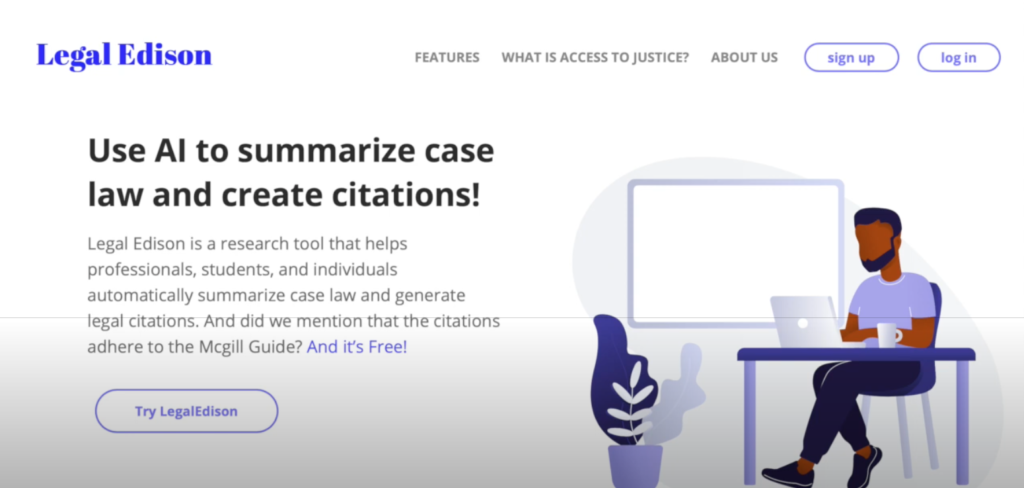
We are used to seeing junior lawyers leave their firms to create startups, but law students who are still in the middle of their studies creating viable legal tech companies is far less frequent. So, meet LegalEdison and its founder, Aniket Bhatt, who is now in his second year of law school at the University of Ottawa in Canada.
As Bhatt explained to Artificial Lawyer, he felt inspired to build a tool using his programming skills to help with his legal research tasks. The system that he built worked so well the project soon turned into something much more substantial and LegalEdison was born.
The system automatically summarises case law and generates legal citations that adhere to the McGill Guide, which is the Canadian authority on uniform legal citations. Plus, it’s free for students.
Here is a short AL TV Product Walk Through that shows what LegalEdison can do, (13 mins approx).
But, how did this law student end up creating a startup? Bhatt told Artificial Lawyer: ‘I was looking for a solution that would help me finish my class readings. When I couldn’t find a platform I came up with the idea for LegalEdison. I decided to build out the first version and shared it with some friends and got great feedback.
‘After sharing the platform on social media I began receiving emails from legal professionals all over the world requesting access to the product. That’s when I realised that LegalEdison could really make an impact on the legal industry.’
Now, from any perspective that is impressive. A lot of students create tech tools, sometimes with no-code platforms, and others build applications as part of hackathons, but the vast majority never become real businesses. Bhatt has managed to take this to the next level – and as mentioned, he’s still at law school.

What does the attention his platform has gained mean to him?
‘Working on LegalEdison makes me feel like I will always be a student because I’m learning something new everyday. However, it really is incredible to see something you have built provide a real and measurable impact. I have the unique position as a law student to see where the legal industry is heading as it begins to really embrace technology,’ Bhatt (pictured above) concluded.
Last word is the company’s mission statement, which is a good one: ‘We believe that access to justice is a fundamental human right. Our purpose is to make sure that every legal professional, regardless of firm size, has the ability to efficiently conduct legal research. We do that by making simple, sophisticated, and affordable legal technology.’